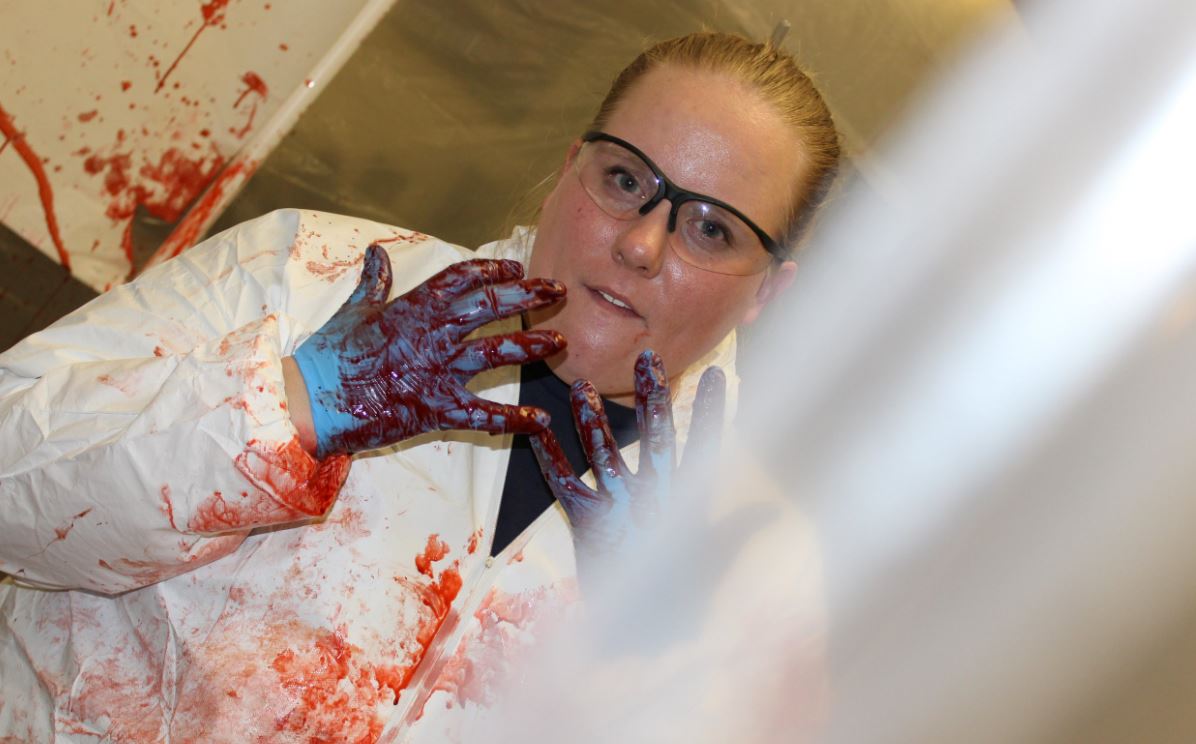Poston Butte High School
San Tan Valley, Arizona
Kayla Kully grew up in the northern suburbs of Chicago, IL, and moved to Arizona in December of 2014. After graduating from college in 2005, Kayla served as a dispatcher for a year and then joined the Morton Grove Police Department in July of 2007 as a patrol officer. Kayla served as a police officer for 7.5 years where she worked in patrol and as a detective. She served on a homicide task force for 3 years and held many certifications in Illinois, including Juvenile Officer, Evidence Technician, homicide investigation, advanced homicide investigation, death investigation, sex crimes investigation, and the John Reid Interrogation technique, among many others. She was also awarded Shift Officer of the Year in 2011 and 2014.
During her last year as a police officer, Kayla began working on her Master’s of Education. She moved to Arizona to complete her student teaching at Poston Butte High School, where she taught Forensic Science and Biotechnology through the STEM Program on campus. She developed the curriculum for the Biotechnology and Forensic Science classes, integrating law-related education to help students understand how forensic science connects to the law. She has built her career at Poston Butte High School, where she also serves as the science department chair and STEM Coordinator. In 2024 and 2025 her forensic science program won 2nd place at the CSI Arizona State Competition. Kayla has also won Teacher of the Year for Poston Butte High School in 2022 and 2024. She was awarded a Flinn Educator Award in 2023 and an Outstanding Educator Award from the University of Chicago in 2020.
The STEM Biotechnology and Forensic Science program at Poston Butte High School shows students the many different fields of study that fall under these two umbrellas of science. Kayla has worked various crime scenes as a police officer and evidence technician, and this allows her to bring hands-on experience to the students in the classroom. In the Forensic Science class, students spend the first three quarters learning: crime scene processing, packaging, and memorializing crime scenes, body decomposition, fingerprinting, blood spatter, DNA fingerprinting, toxicology, serology, hair and fiber analysis, ballistics, impressions, and firearms. Students learn the material and then participate in various labs for each unit. In the fourth quarter of study, students are tasked with five crime scene practicums that are set up each week around the school. They complete sketches, take notes, photograph, collect evidence, process evidence, fill out lab transmittals, write police evidence reports, and watch a fake autopsy of the various body parts collected at the scenes. Students use the various techniques learned throughout the year to work the crime scenes and test their skills. The course also introduces students to law-related education, showing how forensic evidence is used in legal proceedings. This class helps show students what the field of forensics has to offer to them, so they can make the decision if they want to pursue a career in the field of forensic science in the future. Any time you have an educator who can say, "I have been there, and I have done that," it impacts the students in a different way than a textbook could.
Poston Butte High School has previously partnered with the Pinal County State's Attorney's office for three years to run and host a Forensic Science Camp for local teens during the summer. Poston Butte High School currently runs its own CSI Camp during spring break for the students in the Florence Unified School District. The camps are designed by Kayla, but run by the Forensic Science students of Poston Butte High School.
Through her extensive work, Kayla ensures students not only gain scientific skills but also a foundation in law-related education, helping them see how forensic science directly connects to the law.

